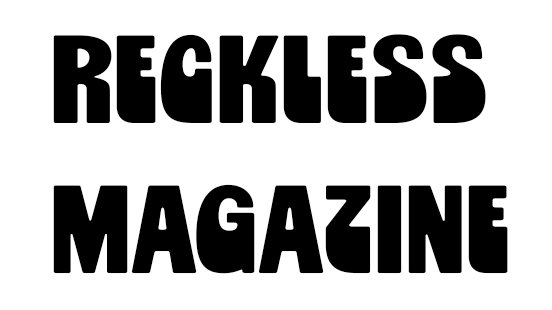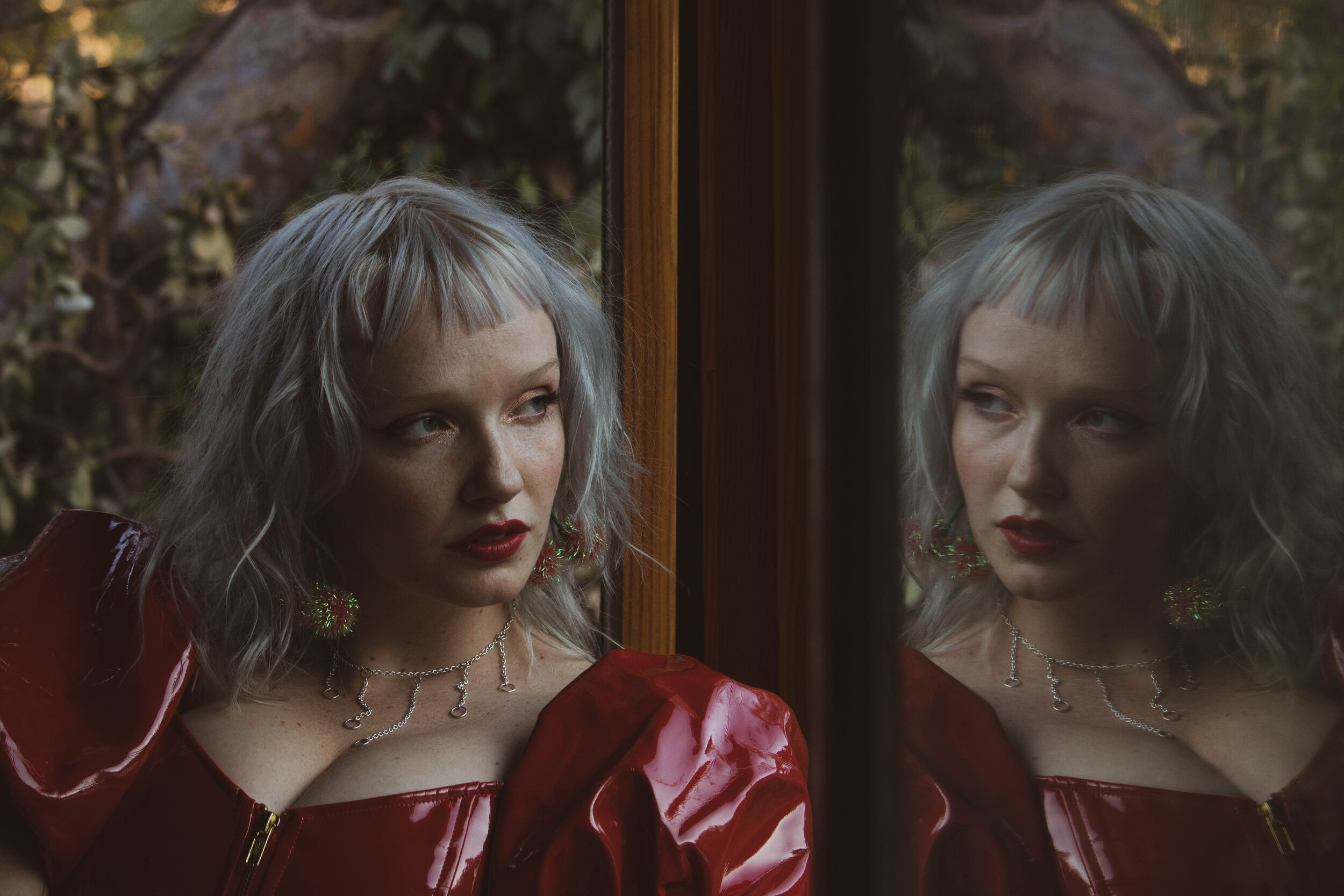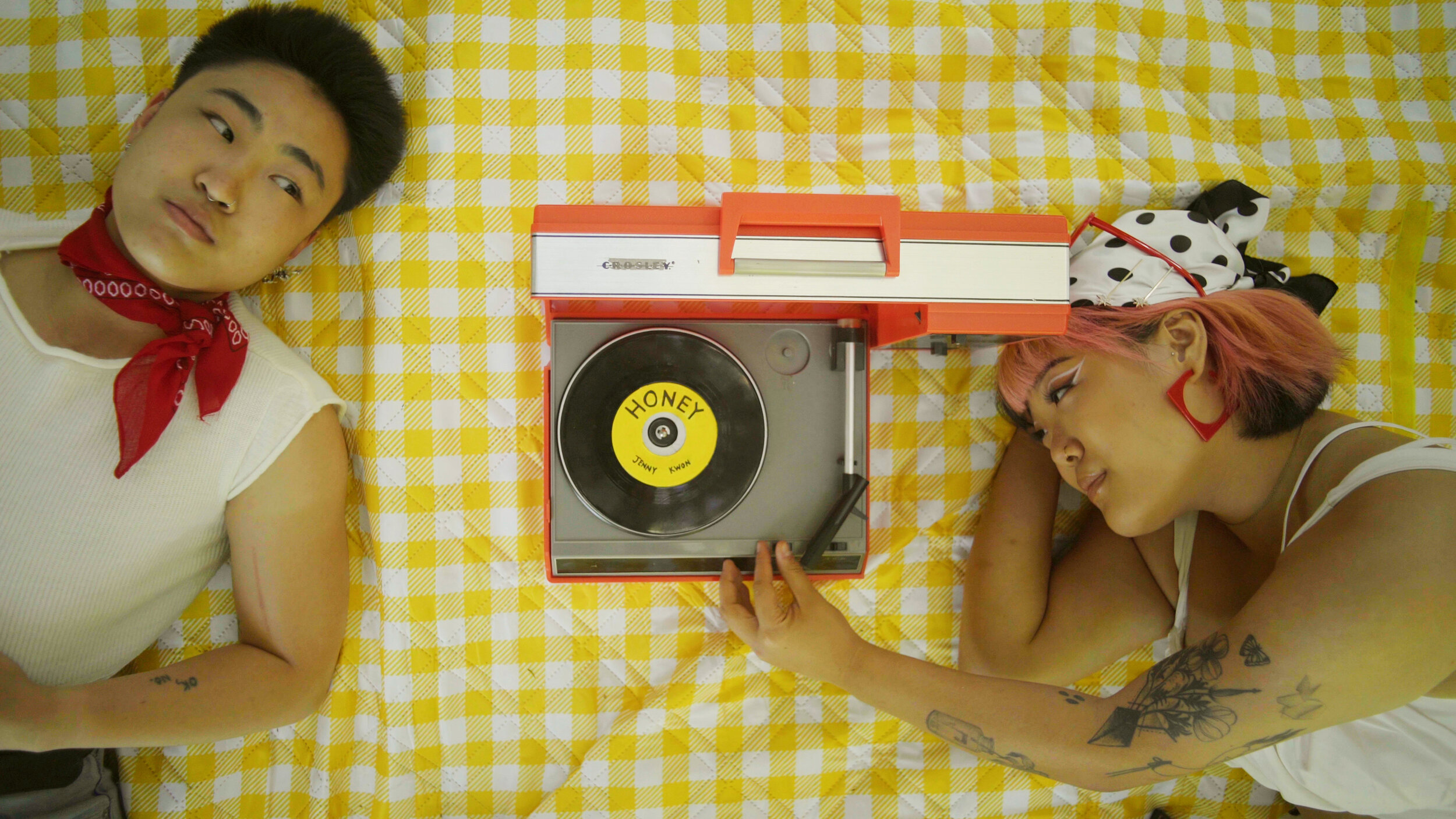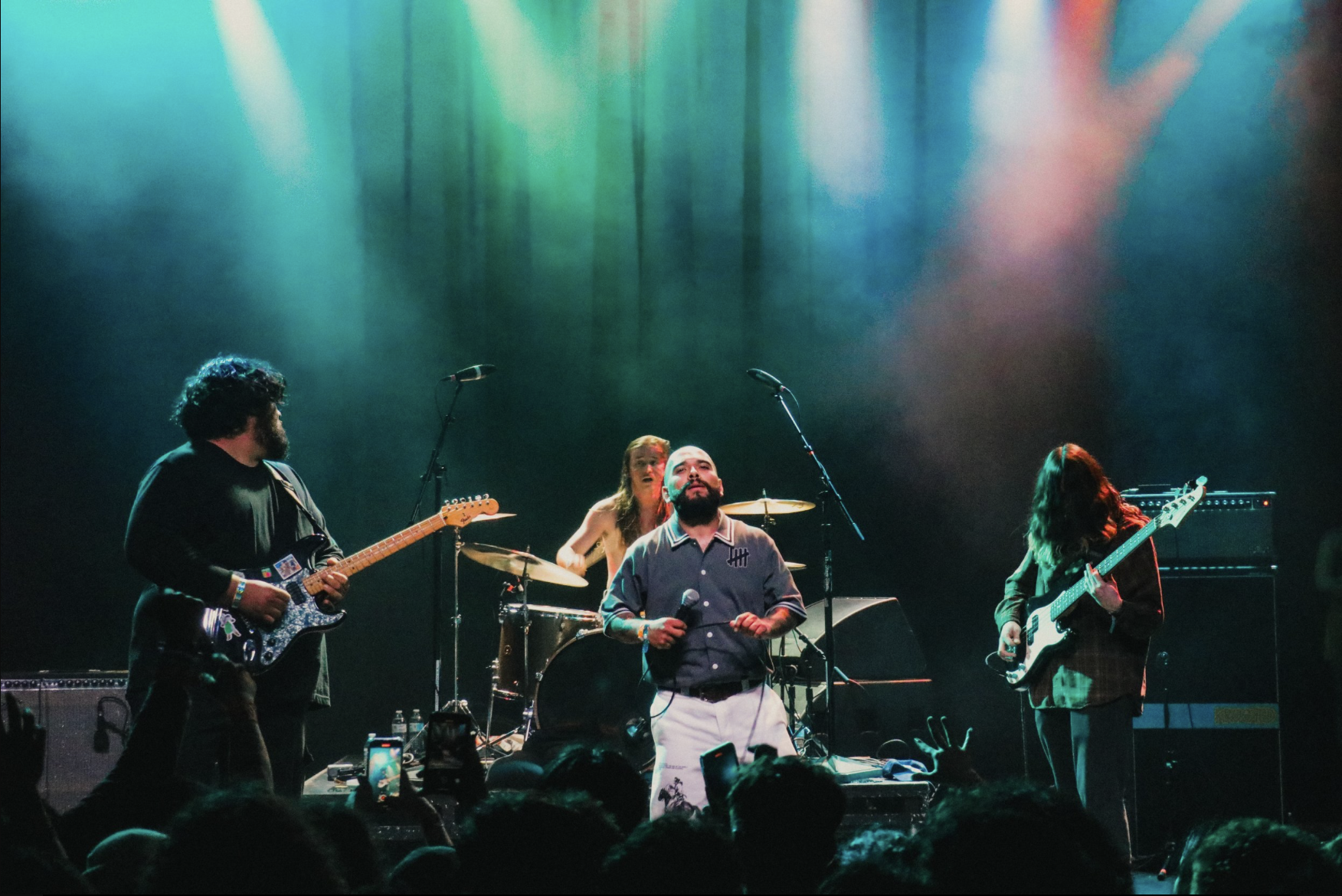Morena

Following your instincts
Written and Photographed by Rick Perez
Self-love, Chicana Pride, and creating your path with musician ADY.
Los Angeles, California, USA
ADY
ADY and I met at Bionicos La Palapa, a local aguas fresas that sells Mexican style juices, ice cream, and raspado. She told me how places like this were so dear to her heart because it reminded her of going to Tijuana with her family as a child. Although being a Mexican myself, I wasn’t familiar with being in a place like this and didn’t really know what to order. She didn’t make me feel bad and happily gave me a suggestion, which was a mangoneada topped with yummy chamoy.
I immediately liked ADY. She was warm, confident, and had a tender way of speaking that made me feel safe. As I listened to her having a conversation with the cashier in Spanish, I somehow knew that I would really enjoy hearing her story.
After we sat down and started talking, I discovered that she too was originally from San Diego. In my experience, a lot of San Diegans have a negative view of Los Angeles and I asked what made her move up north.
“I felt like I hit a ceiling in San Diego,” she explained. “I was doing makeup and felt like I had done as much as I could there, unless I wanted to go really hard into wedding makeup. In the back of my mind, however, I knew I wanted to pursue music and L.A. was the place to be.”
The decision wasn’t an easy one to make. “I was mortified with the idea of L.A.,” Ady continued, “It was overwhelming. I also had friends who came up here before and had a really hard time. I was just fearful of the unknown.”
As she wrestled with the concerns of moving, she realized that the fear of the unknown was actually a good thing. “Because I was so scared, I needed to go. When you feel resistant to something, thats usually the key to unlocking the next level.”
After she made the move, it took her a little while to get adjusted. Her first home was in an artist complex full of trust fund kids and didn’t really fit in with them. Once she left that complex, she met other like-minded creatives, people who encouraged her and helped her become a better artist. She had finally found her place in the city and knew she made the right decision.
“There’s a pulse, sense of aliveness,” she said, talking about Los Angeles. “There’s never a shortage of people who want to collaborate. No matter what level you are on, you are always going to want to be creating your art. Here, it feels easier and everyone is on the same page. I don’t see why I ever hesitated. “
When I asked her if she would ever move back to San Diego, she confidently replied, “Definitely not. Once you are here, you become addicted to creating your dream. I can’t go back. I want to keep doing what I want to do. “
ADY was talking about Los Angeles the same way I used to talk about New York City; she has this love affair with a city filled with artistic misfits who are in constant pursuit of creativity. Talking to her was making me excited to fall in love with a city again.
As we continued to sip on our drinks, we spoke a lot about being a Latino and how Los Angeles is the perfect a place to re-discover your identity as a Mexican-American.
“I feel like I really connected with my culture when I moved here,” Ady said as she began to tell me her family history. “I come from a first generation Mexican-American family and my parents moved here to give us an opportunity. Like many first generation immigrant families, my parents tried to really Americanize us so we could fit in with ‘American’ culture. They weren’t trying to do me a dis-service; they were trying the best they could with what they had but how were they suppose to know that I was craving to connect with my heritage? How do you say that when you are younger and you don’t know? I went to a school that was 80% white and I was always the minority and I was just trying to fit in, too.”
What she said really resonated with me. Although Spanish was spoken in my home often, my parents rarely spoke to me in Spanish and I didn’t know any other Latino families growing up. I knew I was different from the white kids but didn’t have the cultural knowledge to know why. Regardless, cumbia has always been is a constant on my playlist and I light up every time I hear Spanish being spoken anywhere. Is this me craving to connect with my heritage? I believe so.
“In Los Angeles, I’m solely going by my instincts,” Ady said. “Go by what you crave and you’ll find yourself following what makes you feel good. Here I am in Lincoln Heights, speaking Spanish more, writing in Spanish. I feel really good being around other Latinos.”
In a lot of her social media posts, Ady talks about being a Chicana. I asked what being a Chicana meant to her.
“For me, a Chicana is being a Mexican-American and knowing what it means to be on both sides,” She explains. “You’re from the United States but you’re also culturally Mexican and sometimes you feel like an outsider, especially in this political climate. Growing up, I never thought that being a Chicana was important, but now it’s very much who I am. I want to be constantly talking about it, writing it into my music; I want it to be in the forefront of who I am as an artist.”
Ady continues to say that this pride she feels shouldn’t be limited to just Chicanos but to all marginalized people. “Every type of group in the U.S. is starting to feel protective of ourselves. I think it’s important that whatever group or community we identify with, we come together and feel proud of who we are. I’ve never felt so proud to be a Mexican-American because I’ve never felt so shamed and pushed out. These issues have been really brought to light in this political climate.”
At the core of it all, her connecting to her Chicana heritage is a form of therapy. She is complete. “It’s really healing to ancestrally connect with your culture. We have the DNA from our ancestors, being passed down to us. So for me, to have it be a part of my music is being one with all aspects of myself.”
Being a new resident in L.A., I wanted to know her experience of being an artist here. She told me that there have been a mix of high and lows and is currently in a high.
“It’s been feeling like the past few years I’ve been on a bike going up hill,” She says honestly. “I’ve bee really tired and finally the last year I’m like ‘WEEE! I HAVE MOMENTUM!’”
She is grateful for the community she has built while being here. “I appreciate all these little music families we have. It means a lot and means that we we are hustling and doing the same thing.”
Although the life of an artist is not always easy, she tells me that it is always worth it. “If you don’t follow your heart with what you want to do now, you are going to hate your life. You can eat healthy, take your vitamins, but your emotions are the majority of it. I’d rather make sacrifices to do what I love than be in a job I hate because society says that you should be making a certain amount of money. I feel rich now but I’m probably the poorest I’ve ever been. I feel so blessed to be able to focus on music.”
She tells me that making music can be successful. Musicians make a living all the time, you just have to know where your music belongs. “People say ‘you can’t make money doing music’- well, you can. People get their music on tv shows, commercials, play dj sets; there’s so many ways to make money.”
For her, ADY sees her music belonging on tv and films. “Syncing is something I want to try to do. Syncing is how you get your music onto commercials or tv shows. I imagine my music to be on a show like Broad City or Insecure. Something female positive, sex positive. You gotta think big; other people are doing it, why can’t you?”
Like many of us artists, ADY can struggle with comparing herself to others. She warns that this can be a downfall. “The hardest part is not giving up when you see other people succeeding too. Being in L.A. you see a lot of success and you feel like you are just sitting there thinking ‘what do I do?’ Focus on your own shit.”
I’ve really come to terms with this as well. It’s great that I can be successful and great that others can be successful as well. I feel like there’s room for all of us. “The world is abundant, creative opportunities are abundant,” She confirms. “You just have to keep reminding yourself that.”
When I asked her what kind of impact she wants to make on the world, she tells me that the number one thing is self-love. “In order to contribute to the world, you have to be there for yourself,” She stresses. “Sometimes I want to skip that part and just be out there and speak at high schools and tell girls to love themselves, blah blah blah. Then I realize you gotta speak for yourself first.”
Once you love yourself, that’s when you can make the biggest impact. “If I ever get to a point where I have any soap box, I want to be all about non-profits, community, self love; those things are so important. I want my music to be an avenue to work with the non-profits that I’m passionate about, bringing the community closer, and help people feel empowered to make a life for themselves and make them feel fulfilled. That’s the only thing we can control. I would love to have the opportunity to make the greatest impact possible, that’s the dream. Like little Ady, little Rick, we all need better role models. “
As I write this article, I can’t help but being a little emotional. I feel like ADY has gone through a personal and cultural renaissance that I am about to experience as well. New York taught me to be an artist; will Los Angeles teach me how to be a Latino? In my life journey, I have come to terms with my sexuality, discovered my passion, and now it is time to reconnect with my roots. Like ADY, I will always follow my instincts, create my own path, and learn to be the role model that little Ricky had always wanted.





